(Chinhphu.vn) - Local leaders must uphold their responsibility in preventing and combating natural disasters and incidents because the leaders are the direct commanders on the spot and can make the wisest and most reasonable decisions at the time of incidents and natural disasters.
Deputy Prime Minister Tran Luu Quang speaks at the national online conference on natural disaster prevention, control, search and rescue in 2023 and deploying key tasks in 2024 - Photo: VGP/Hai Minh
On the morning of May 10, at the Government Headquarters, Deputy Prime Minister Tran Luu Quang chaired a national online conference on natural disaster prevention, control, search and rescue in 2023 and deployment of key tasks in 2024.
Attending the Conference at the Government Headquarters were Minister of Agriculture and Rural Development Le Minh Hoan, leaders of central ministries and branches, UN Resident Coordinator in Vietnam Pauline Tamesis, representatives of development partners and organizations UNDP, UNICEF, JICA.
UN Resident Coordinator in Vietnam Pauline Tamesis stressed that one of the UN's priorities is to fund the institutionalization of early actions in disaster management - Photo: VGP/Hai Minh
The world lost 260 billion USD due to natural disasters
According to the Report at the meeting, in 2023, the world and the region experienced many major natural disasters with wide-ranging impacts, exceeding historical levels, causing very serious damage to people and property, typically the earthquake on February 6 in Türkiye that killed over 55,000 people, economic damage of over 163 billion USD or flash floods due to dam failure in Libya that killed and left missing over 12,300 people, the strongest snowstorm in 100 years in 20 states in the West and Central of the United States, or the hottest year in history...
Swiss reinsurance group Swiss Re estimates that the total economic damage caused by natural disasters worldwide last year could reach $260 billion.
In the first months of 2024, heavy rain caused floods and dike breaks on Russia's Ural River, inundating 6,000 houses and forcing thousands of people to evacuate; floods and landslides in Guangdong killed 48 people and forced 110,000 to evacuate.
In Vietnam, natural disasters in 2023 occurred extremely in all regions with 1,964 natural disasters of 21/22 types, especially heavy rains causing landslides, flash floods, floods, and widespread inundation. It was an unusual year when the number of storms and tropical depressions was much less than the average of many years and no storms made landfall.
In 2023, there will also be many accidents at sea, construction collapses, chemical, toxic, radioactive incidents, oil spills, fires, and explosions with more serious levels than the previous year.
The whole country recorded 5,331 incidents and natural disasters, causing 1,129 deaths and missing people; economic damage due to natural disasters is estimated at over 9,324 billion VND.
In the first months of 2024, a number of serious natural disasters occurred across the country, such as severe cold in the Northern and Central regions; drought, saltwater intrusion, landslides and flooding due to high tides in the Mekong Delta, most seriously in the Ca Mau region.
In particular, record heat was recorded at 110/186 monitoring stations nationwide; earthquakes were recorded in provinces and cities such as Hoa Binh, Lai Chau, Tuyen Quang, Hanoi, and Kon Tum.
Since the beginning of the year, natural disasters have left 14 people dead or missing, with material damage estimated at over 399 billion VND.
Localities attend the Conference online - Photo: VGP/Hai Minh
Disaster relief assistance hits record high
Regarding the work of overcoming the consequences of natural disasters, in 2023, the Government decided to support 8,500 billion VND from the central budget reserve for 43 provinces and cities to overcome the consequences of natural disasters.
Of the total support capital, the Government allocated 4,000 billion VND for 13 localities in the Mekong Delta to implement projects to prevent riverbank and coastal erosion.
Along with the support, working groups have been established, chaired by the Steering Committee and the Ministry of Planning and Investment, to inspect the use of support resources for localities.
Localities have also prioritized and used resources for natural disaster prevention and control activities with a total budget of over 3,070 billion VND.
The Ministry of Agriculture and Rural Development has provided 100 tons of rice seeds, 67 tons of corn seeds, 10 tons of vegetable seeds; 56 tons and 10,000 liters of chemicals to disinfect livestock, poultry and aquatic products to localities to promptly stabilize production.
According to Deputy Minister of Agriculture and Rural Development Nguyen Hoang Hiep, the Government has never allocated as much budget for natural disaster prevention and control as in recent times.
Deputy Prime Minister Tran Luu Quang requested to strengthen inspection and supervision work, especially before the flood season - Photo: VGP/Hai Minh
Weather forecast for the whole country in the coming time
The General Department of Hydrometeorology said that in the coming time, natural disasters are likely to become complicated, unpredictable and extreme.
It is forecasted that there may be many severe heat waves in many regions across the country with temperatures higher than the average of many years.
After El Nino, the impact of La Nina in the last months of the year can cause heavy rain and floods, especially in the Central region, accompanied by landslides and flash floods in mountainous areas.
ENSO phenomenon maintains neutral state until June with probability 80-85%, then has the possibility of transitioning to La Nina state with probability 60-65% and is likely to last in the last months of 2024.
From April to June 2024, heat waves are likely to increase in intensity and gradually expand to other parts of the Northern, North Central and Central regions.
In the Northern and Central regions, heat waves and severe heat waves are likely to occur more frequently than the average of many years in July and August, so be prepared for especially severe heat waves.
The heat tends to decrease from the second half of August in the North and from September in the Central region.
The Central Highlands and the South are forecast to experience drought until the first half of May; the Central region is likely to experience prolonged drought from April to August.
From the end of June, there is a possibility of storms and tropical depressions appearing in the East Sea; there are about 11-13 storms in the East Sea, of which 5-7 storms are likely to affect the mainland. Storm and tropical depression activity is likely to be concentrated in the second half of the storm season from September to November.
At the meeting, localities proposed that the Central Government continue to provide financial support for localities to overcome the consequences of natural disasters in 2023, build resettlement areas to relocate people in emergencies, upgrade reservoirs, dams, and key dike locations.
Localities also requested central ministries and branches to develop and submit to competent authorities to issue Decrees and Decisions to replace Decree No. 02/2017/ND-CP and Decision No. 01/2016/QD-TTg which have expired.
Ha Tinh province, one of the localities with the most reservoirs in the country (348 reservoirs with a total capacity of about 1.6 billion m3 of water), wishes to soon implement the project to build Trai Doi reservoir, whose planning has been approved by the Prime Minister.
Ha Tinh also hopes that central ministries and branches will help the province research comprehensive solutions to enhance flood drainage capacity and minimize flooding in the Ngan Sau river basin.
Thua Thien Hue province recommends that central ministries and branches allocate resources to promptly implement inspection and assessment of safety management of dams, irrigation and hydropower reservoirs.
Dak Nong province proposed to focus on increasing forest cover and forest cover quality; have a strategy to reorganize agricultural production to be more adaptable to weather instability and natural disasters.
Ca Mau province is facing three challenges at the same time: coastal erosion, lack of domestic water in the dry season while 90% of groundwater has been used, and the risk of forest fires; it is recommended that when reorganizing the civil defense steering committee according to the Civil Defense Law, which will take effect from July 2024, it is necessary to pay due attention to the role of sectors and fields, especially the agricultural sector.
Speaking at the Conference, UN Resident Coordinator in Vietnam Pauline Tamesis emphasized that one of the UN's priorities is to fund the institutionalization of early actions in disaster management.
Ms. Pauline Tamesis said that Vietnam needs to integrate early actions into institutional frameworks, policy mechanisms and ensure sufficient financial resources to implement early actions in disaster management.
For early action in disaster management, accurate and reliable disaster data and information, along with the ability to analyze data, are crucial to capture information about the most vulnerable, especially women and children.
Ms. Pauline Tamesis also recommended that Vietnam further strengthen empowerment and prioritize community participation in disaster risk management.
Deputy Prime Minister Tran Luu Quang and delegates take a souvenir photo at the Conference - Photo: VGP/Hai Minh
Creating a favorable legal corridor for disaster prevention, control, search and rescue
Concluding the Conference, the Deputy Prime Minister highly appreciated all levels and sectors for closely monitoring the situation; being proactive in directing the response and overcoming the consequences relatively well on the general level of the whole country compared to many previous years; the quality of hydrometeorological forecasting has improved a lot, which is very encouraging; the policy mechanism has been adjusted very promptly, especially the birth of the Law on Civil Defense... contributing to minimizing the damage of natural disasters and incidents in the past time.
However, the Deputy Prime Minister frankly acknowledged that the awareness of officials and people is still lacking in some places; not all places do a good job of inspection, supervision and urging, even before the natural disaster and flood season.
There are also issues in monitoring, forecasting, and early warning that need to be rectified and improved; some legal regulations are not clear, overlap, or are not suitable, some of which were issued 15 years ago.
On a national level, the resilience of infrastructure is still limited, so it needs to be gradually invested in and developed.
Regarding the tasks in the coming time, the Deputy Prime Minister requested to focus on preparing to complete the apparatus for natural disaster prevention, control, search and rescue according to the Law on Civil Defense, ensuring that the new apparatus operates faster, stronger and more effectively. The Ministry of National Defense will closely coordinate with relevant ministries and branches to soon develop a Decree guiding the implementation of the Law on Civil Defense.
The Deputy Prime Minister directed ministries and branches to continue to complete the amendment and supplementation of legal documents; boldly propose new regulations to create a complete and favorable legal corridor for natural disaster prevention and control, search and rescue work.
We need to do better and more effectively the communication work to raise awareness of everyone, first of all those responsible, through social networks or text messages...
The Deputy Prime Minister requested to strengthen inspection and supervision work, especially before the rainy and flood season; regularly review, calculate and update disaster and incident response scenarios to be as close to reality as possible.
The hydro-meteorological forecasting agency must continue to improve the quality of forecasts to be as timely and accurate as possible, the Deputy Prime Minister requested.
The Deputy Prime Minister also suggested that each locality focus on improving its management capacity; increase the delegation of authority and enhance the responsibility of local leaders because they are the ones who directly command on the spot and can make the wisest and most reasonable decisions at the time of incidents and natural disasters.
The Deputy Prime Minister emphasized the need to strive to mobilize investment resources and other resources for natural disaster prevention, control, search and rescue, focusing on mobilizing resources from society for overcoming the consequences of natural disasters and incidents in the spirit of promoting the tradition of sharing in times of difficulty and adversity.
Deputy Prime Minister Tran Luu Quang hopes that international organizations will continue to accompany Vietnam, especially in exchanging and sharing information and experiences with other countries; supporting professional training, especially in accurate forecasting; and paying attention to investing in projects to build infrastructure, equipment for natural disaster prevention and control, and search and rescue using non-refundable aid and preferential loans./.
Hai Minh - Government Portal
Source: https://baochinhphu.vn/nguoi-dung-dau-dia-phuong-phai-neu-cao-trach-nhiem-trong-phong-chong-thien-tai-102240510142856613.htm

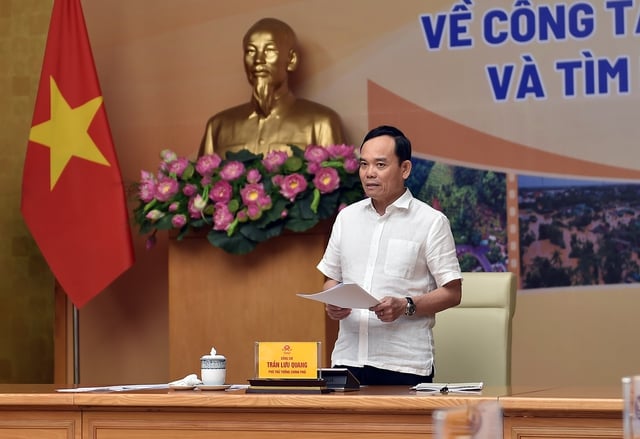
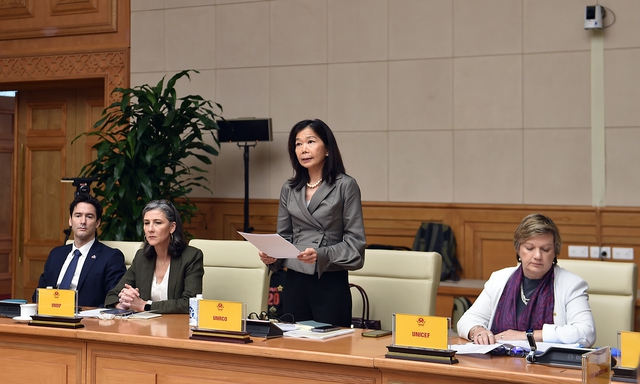
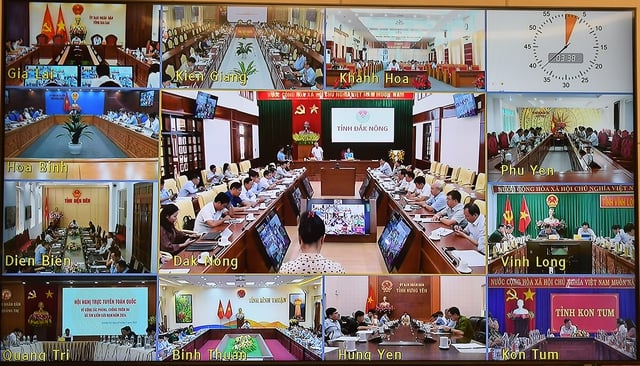
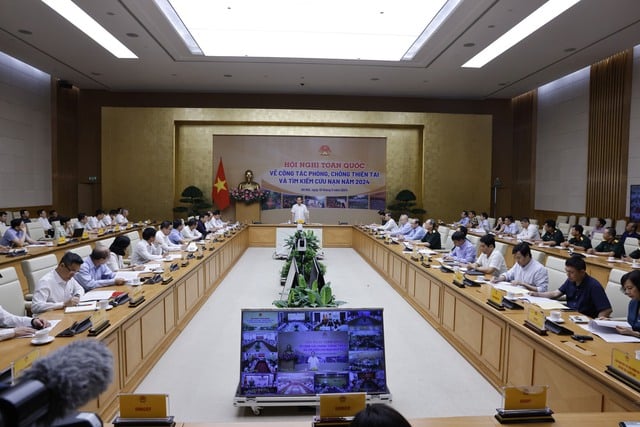



![[Photo] National Assembly Chairman Tran Thanh Man meets with Thai Prime Minister Paetongtarn Shinawatra](https://vphoto.vietnam.vn/thumb/1200x675/vietnam/resource/IMAGE/2025/5/15/e71160b1572a457395f2816d84a18b45)

![[Photo] Prime Minister Pham Minh Chinh receives Country Director of the World Bank Regional Office for Vietnam, Laos, Cambodia](https://vphoto.vietnam.vn/thumb/1200x675/vietnam/resource/IMAGE/2025/5/15/2c7898852fa74a67a7d39e601e287d48)

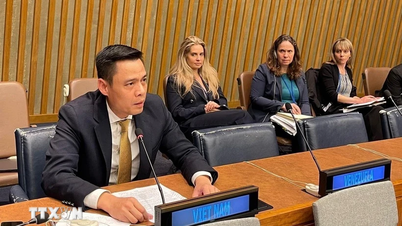























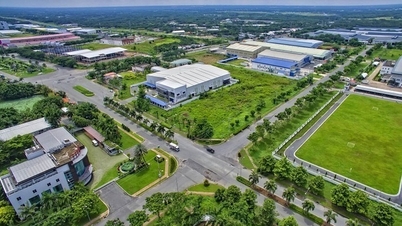




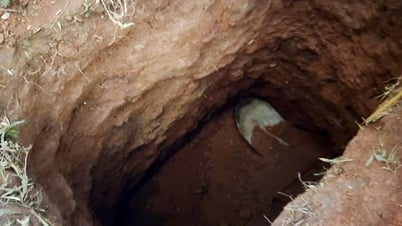








































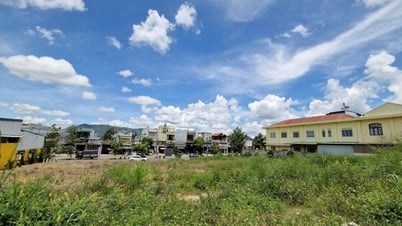
















Comment (0)